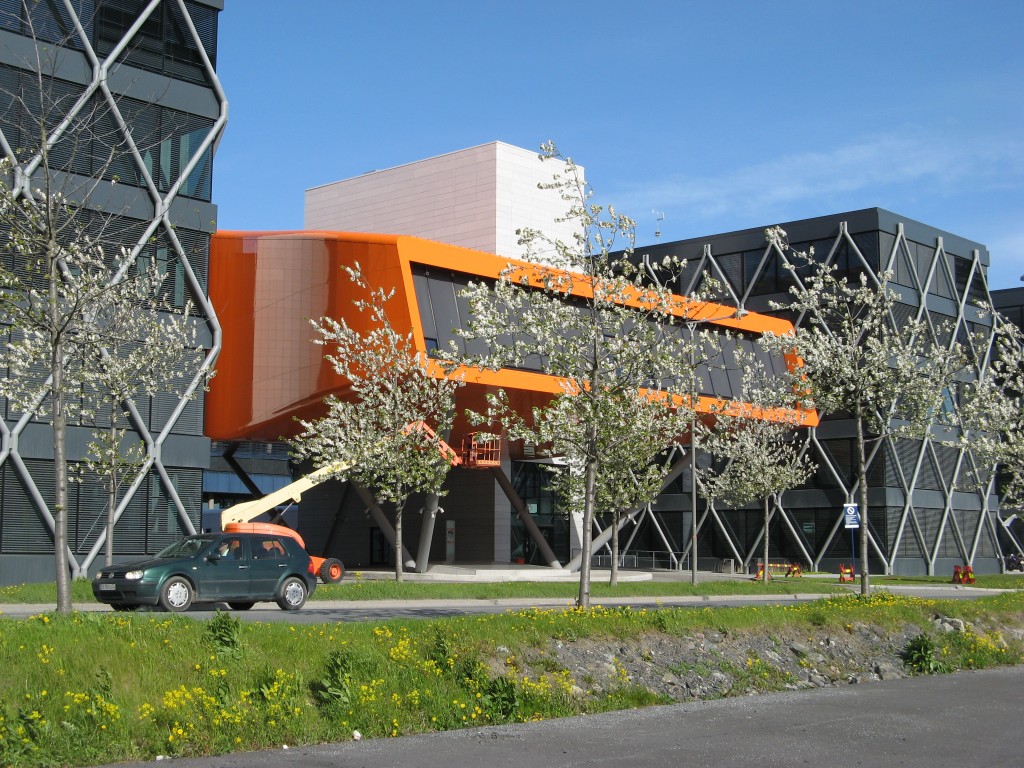NorNet is proud to announce that several newly accepted EU Horizon 2020 and RCN projects will use the infrastructure for measurements and testbed activities.
H2020 – Measuring Mobile Broadband Networks in Europe (MONROE)
There is a strong need for objective data about stability and performance of Mobile Broadband (MBB) networks, and for tools to rigorously and scientifically assess their performance. In particular, it is important to measure and understand the quality as experienced by the end user. Such information is very valuable for many parties including operators, regulators and policy makers, consumers and society at large, businesses whose services depend on MBB networks, researchers and innovators. MONROE proposes to design, build and operate an open, European-scale, and flexible platform with multi-homing capabilities to run experiments on operational 3G/4G Mobile Broadband networks. The main objective of MONROE is to use the platform for the identification of key MBB performance parameters, thus enabling accurate, realistic and meaningful monitoring and assessment of the performance of MBB networks.
Partners: Simula, Telenor, University of Karlstad, Fundación IMDEA Networks, Politecnico di Torino, NET1, Celerway Communication, Nextworks, Nomad Digital.
Project period: 01.03.2015 – 28.02.2018
Guaranteed infrastructure maintenance: 30.04.2020
Budget: EUR 6 542 420
H2020 – A New Evolutive API and Transport Layer Architecture for the Internet (NEAT)
The NEAT project wants to achieve a complete redesign of the way in which Internet applications interact with the network. Our goal is to allow network “services” offered to applications – such as reliability, low-delay communication or security – to be dynamically tailored based on application demands, current network conditions, hardware capabilities or local policies, and also to support the integration of new network functionality in an evolutionary fashion, without applications having to be rewritten. This architectural change will make the Internet truly “enhanceable”, by allowing applications to seamlessly and more easily take advantage of new network features as they evolve.
Partners: Simula, Mozilla, Cisco, EMC Information Systems International Ltd, University of Karlstad, Celerway Communication, University of Aberdeen, Fachhochschule Münster, and University of Oslo.
Project period: 01.03.2015 – 28.02.2018
Budget: EUR 3 957 003
RCN – Dissecting and Modeling Interdependencies in Communication Networks (DOMINOS)
In today’s society, communication infrastructures are evolving to be the single most important point of failure. At the same time, the complexity of these networks is increasing at an unfollowable pace. The interaction between these networks and their surrounding eco-system, encompassing everything from the physical infrastructure they run on to the policies regulating their operations, are far from being understood. Understanding these interdependencies is crucial for avoiding large-scale failures. DOMINOS aims to investigate interdependencies in complex systems that are organized as a network of networks with emphasis on communication
networks. We will follow an experimental approach by measuring real systems. Then develop agent-based computational model that adequately resembles real networks and use to answer intricate what-if questions. We believe that this work can help both expanding our understanding of interdependencies in communication networks as well as serve as an input to other disciplines that study complex interdependent networks.
Partners: Simula, University of Bergen, CAIDA
Project period: 01.03.2015 – 28.02.2019
Budget: Approx EUR 960 000

